Critical Judgement: A Personal Perspective
Critical judgement gives non-fiction writers the ability to independently convey opinions. Anyone who is able to communicate their own opinions are capable of critical judgement, wherever contemplating pros and cons of a person’s argument or studying a piece of art. Non-fiction writers like to express their opinions for various reasons. My perspective is that there is a need for expression, to share what I find appealing onto those who may share similar interests. Non-fiction writers sharing their critical judgement through articles is also to possibly change perceptions. Not only is it for non-fiction writers to achieve these aims, but they can use various methods in preparing articles to re-enforce and strengthen their critical judgement.
Educating Yourself with an Open Mind
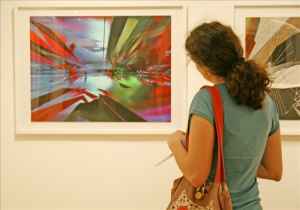
Non-fiction writers focus upon any subjects or issues which concern them, wherever their aim is to advocate or condemn. My experience as a film and media studies graduate means various forms of media are subjects which not only reach my critical capabilities to analyse, but there is a personal interest as an avid film fan. Yet the more articles I have written, there has been a need to explore other subjects I feel obliged to discuss. Non-fiction writers who allow themselves to explore with an open mind means their critical judgement can expand and strengthen. The inspiration for World War One: Truth Within Artistic Representations had been a visit to a local art gallery. Art galleries are places where you are able to be open to different forms of expression. Works of art force us to engage with their intentions and technique. I became intrigued by numerous paintings and sketches which captured war’s catastrophic terror. The centennial of World War One’s outbreak had only been a few months prior, so sharing the exhibition’s work to a mass audience was to counter public perceptions of war solely glorifying patriotism.
The Art of Milton Glaser: To Inform and Delight was inspired after watching a television documentary by chance. Throughout my viewing, I admired Glaser’s motivations for political and social change within his work. This resulted in further study of Glaser’s work that expanded my interest in analysing Glaser as an artist. This was a similar reason for The Decisive Moment: History Within a Photographic Concept. Although I had previously been interested in photography in terms of capturing symbolic or realistic content, I had never heard of the decisive moment concept until purchasing a photography book regarding historic events. I realised how specific photographs can help generations understand historic events through photographs. By exploring these subjects further, I became more educated not only upon the subject, but it expanded my critical judgement. The more I studied subjects and issues for articles, I was able to create thorough analytical arguments to advocate or condemn.
Independent Thinking

As previously stated, non-fiction writers need independent thought to create their own opinions. It is fundamental as without independent thought, non-fiction writers would simply be recycling others’ opinions. Non-fiction writers without independent thought would simply be narrow-minded. Narrow-mindedness would result in bland articles that lack depth. Any article with these qualities would not be interesting to read, the antithesis for any non-fiction writer. My film and arts-based articles have required me to be critical of the specific subject. In the article Broken Flowers (2005) and Ambiguity: The Need for Active Viewers, I argued that audiences must be active to gain a meaningful viewing experience otherwise they might become confused with the narrative’s ambiguity. Non-fiction writers who are incapable of interpreting ambiguity will struggle to become an independence thinker. If the article had simply discussed Broken Flowers without noting its ambiguity, then the analysis would be insufficient.
Similarly, the analysis of The Female Body in Art as a Non-Sexualised Being continuously referred to understanding an artist’s intentions in order to analyse their work. This is a vital requirement in critical judgement or else an article will not be informative. Another method of independent thought is interpreting others’ opinions. In The Female Body in Art as a Non-Sexualised Being, various sources of the artists’ quotes were used to emphasis my analysis of their work. Whenever using sources within an article, either to emphasise your argument or use the source as highlighting a contradiction you wish to reveal, means you can develop your own opinions. If non-fiction writers simply use quotes without building upon them with their opinion, then there is no substance behind the quotes usage.
Critical judgement is clearly important for all non-fiction writers to have in order to independently convey opinions. The ability of letting yourself explore various subjects and see their positive and/or negative points makes anyone capable of critical judgement. It is not necessary true that non-fiction writers who stick with a narrow range of subjects are not able to seek new subjects with an open mind. However, seeking out new subjects does allow for non-fiction writers to become more versatile in their articles. Therefore the more non-fiction writers explore new subjects, their sense of critical judgement will improve. This also goes along with understanding the importance of independent thought. Non-fiction writers conveying their critical judgement to change perceptions can only be known through their own opinions. Without independent thought, then non-fiction writers will struggle to form critical judgement.
What do you think? Leave a comment.
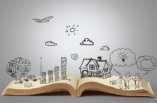

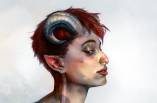
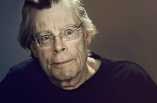
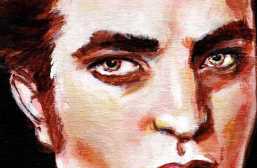
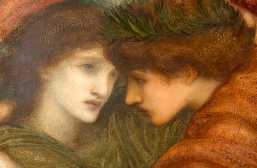
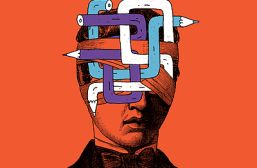
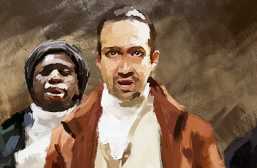
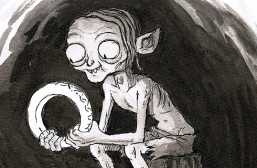
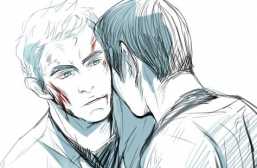

I am an aspiring writer by the age of thirteen, I am most experienced at fantasy and has studied ancient and medieval history both at home and in school for the last three years which had greatly helped in my writing. I am currently writing the third draft of my first novel.
That’s wonderful. I say, keep going. I always leave my stories unfinished. You don’t want to be that person, so keep writing until you’re fully satisfied.
Thank you for sharing. 🙂
If writing stories is a marriage, then I’m a polygamist.
I wish everyone a great success with their writing careers. Something to help you achieve your goals is to write often and read more often.
I am trying my hands on story writing, wish me luck!
As someone who needs to come up with a new idea every week, I can tell you relaxation is incredibly important. I’ll get frustrated and upset when nothing comes to me on Monday, but I tend to have something by Thursday at the latest.
I just recently came up with a whole list of stories myself. They’re more like ideas, but I could grow them into stories. I’ve felt pretty good about a lot of them, and a few have stuck out. One of them involves time travelers. I like time travelers.
I will use this information when writing or thinking of writing.
Nice post! I’m back in the land of the living after having pushed myself physically to the limit, to finish my article.
When choosing my subject, I am always concerned about what people might like to read.
I feel as though this is an important topic to study further sometime. Often, as a person who has to write some critical essays, I find both keeping an open mind and having an opinion helps this kind of writing flow better than normal.
Thanks. This is timely for me. I will share this with my writing group.
This entire site is very good. Solid!
Another good question might be, “Is this too ambitious? Do I have so much going on that I don’t even know what the core of the story is?”
It is so difficult to avoid over-thinking one’s work. Writing is rewriting.
Interesting topic indeed!
It seems to narrow imaginations one likely validates thoughts within- how anything applies on a author as body and mind. Critical thinking likely grounds in that self researching
I can’t help but agree with the author on the issue of narrow-mindedness. A key to being a good non-fiction writer is open-mindedness and consciously exposing oneself to other views and unknowns.
On the topic of forming one’s own opinions, I think what makes non-fiction writers unique is their ability to draw on their experiences to reach a conclusion.
I write to engage the reader in order to understand in an objective manner what I’m trying to convey, as well as what the topic entails. I try not to be subjective when expressing my opinion on a topic, instead I try to allow all parties and discussions to be welcomed in order to reach a conclusion.
A very significant topic, covered through a sequence of generalised notes: “As previously stated, non-fiction writers need independent thought to create their own opinions. It is fundamental as without independent thought, non-fiction writers would simply be recycling others’ opinions.” what is “independent thought”? In what way(s) is it independent when a work of art “forces” one’s engagement? There is always a dialogue that the critical thinker mediates through the engagement, based on the experiential and educational resources the critical thinker brings to the point of engagement.
There are statements of sound critical practice: “If non-fiction writers simply use quotes without building upon them with their opinion, then there is no substance behind the quotes usage.”
Quibbles: errors in subject noun- pronoun agreement, slack, generalities: “various reasons”, “similar interests”, “various methods”, weakly formulated sentences: “Non-fiction writers sharing their critical judgement through articles is also to possibly change perceptions.”, statements of the obvious: “Non-fiction writers focus upon any subjects or issues which concern them, wherever their aim is to advocate or condemn.”–need the qualifying caveat be there? If so, contextualuse it: “2. the analysis and judgment of the merits and faults of a literary or artistic work.” (Google search), awkward, subjective and vague formulations: “Yet the more articles I have written, there has been a need to explore other subjects I feel obliged to discuss.”
To the nub: “The more I studied subjects and issues for articles, [the more] I was able to create thorough analytical arguments to advocate or condemn.” The posted piece is a subjective, diary entry or journal of notes for later review in the composition of a more thorough critical essay. That later project is a worthy goal and the beginnings of it are present here.
I like to let the subjects to take me down the highways and bye ways of independent thought exploration. The danger is that it’s so easy to get caught up in other scholars’ thoughts and ideas. I studied religion and philosophy, great subjects for developing creative independent thought. Hate it when I think I’ve found a novel idea only to find out somebody else got there first.
mickymoo15
Interesting!
Hi Ryan,
Enjoyed your piece. Very important content for all people. I am a contemporary saxophone player, with a special interest in collaborative performance projects with artists of different disciplines of performing arts. Lots of critical and reflective thinking involved in performing art projects. Would love to chat about potentially finding a topic for a joint article.
Cheers!
Simon MacLeod
Bachelor of Music Performance
University of Calgary
Non-fiction is my favorite subject since I am totally bored from fantasy fiction that is unreal. I like read and write about reality, so I can believe in what I am reading, which is the key to making what you read become interesting. I write diaries of my own about my own personal life, but all of it conveys my own feelings, thoughts about certain encounters, events, and problems.
I also write critical essays for my college classes where I focus in depth on one topic and relate it to my daily life, or to my family and freinds’ experiences. I also compare few minor topics and see how they differentiate between each other.
Not to be flip, but if I was critically judgmental, the first thing I’d do is correct the spelling of “judgment.” No “e” after the “g.”
Actually, both ways are correct.
The idea of keeping an open mind is something I am passionate about. Great piece!
This is s good topic and a well-written article. Kudos!
My main type of writing is free-verse poetry.
This article is pretty accurate. I am a journalist and I love reporting on politics and other current events but sometimes I struggle finding the right topic to discuss in a way that shows my intelligence and opinion on the topic (without sounding like everyone else or every established news station).
Great points, especially about being able to notice ambiguity. Thanks for sharing a thought-provoking article.
I wish high schools would prepare their graduates for this type of thought and expression. There are too many cases when a student is given a writing/research assignment and they just go out and find a few articles relevant to their topic and then regurgitate the information in between a barely coherent introduction and conclusion–the latter usually having little- to-no analytical expression whatsoever. There is a need for students to understand that it is THEIR OWN critical interpretation that is being sought after by their professors. They cannot simply cite a few relevant articles. They must put together a bibliography which encompasses the historical progression of the public discussion on their subject. They must explain where the discussion stands today, what is generally accepted as true, and then retrace where this interpretation came from, how did it change over time. And only then can they search for holes where their own unique study may be conducted or add their own critical interpretation to contemporary understandings.
And as the author points out, it is along this journey of discovery that the student also discovers their own voice, their own acceptance or condemnation of any given event or issue. For example, I have always been an avid long-distance backpacker. So when it came time to write a senior honors thesis, I thought it best to write about something I enjoyed and already had a fair amount of knowledge about. While researching this topic, I was exposed to studies of space and place and the meaning and symbolism that places can reinforce and reify. This is a popular concept within the realm of cultural geographers. Next thing you know, instead of simply writing a history of backpacking in the US, I’m writing a historical-geography of backpacking and the symbolic power that certain places–certain backpacking destinations–have over both the individual and American society as a whole. If I had not been able to engage these materials critically, and had instead just regurgitated opinions that came before mine, I don’t think I would have written anything useful, anything significant.
100% agreed with mcutler1. The ability to think critically is not being promoted as it should and with the amount of information available today, the critical thinking skills are essential. It is what separates us from the machines.
Ryan, this is a wonderful piece. I often find that non-fiction writers, especially on academic level are asked to “specialize” in one particular area. Although specialization does have its merit in strengthening the writer’s abilities in one particular field, this practice often restricts and limits our creativity. For example, we can never discuss religion without understanding politics or cultural values without knowing the social composition of a society.
I agree with this concept completely. It’s definitely important to emphasize the fact that studies are not completely segregated. Post-secondary institutions still highlight differences rather than similarities concerning different faculties, when there could be enormous benefits to combining aspects from different areas of study.
I feel that being open minded and exploring all views and points in an individual’s writing is extremely important in building on one’s education and open-minded thought process.
Critical thinking by exploring all points of view is a skill I believe is overlooked in present educational institutions. Much of the time, students are told to write a piece that favours one point of view and are penalized when bringing in others, usually because of their lack of clarity and confusion in their writing. Educational leaders should be encouraging students to explore different points of view on the subject and by helping them research and clarify what they are trying to say.
Critical thinking is a much needed skill in our communities and work forces presently as it spurs creative and innovative problem solving solutions. As voiced in this article, reiterating someone else’s thoughts will not further our society, but enforce a stagnant and closed mind set in our local and even global community.
I don’t know why teachers, especially high school English teachers force students to one present one viewpoint. That is so old fashioned. When I teach high school English I always encourage the students to analyze the literature with 10 lenses and use the most appropriate perspectives that lend themselves to the writing piece. When encouraged to do so I find most students learn quickly.
Even worse, as Nomi pointed out, students are penalized for bringing in diverse views. Educational leaders are suppressing critical thinking. If that is not dumbing down what is?
Regurgitation seems to be promoted rather than developing critical thinking.
The thesis is fairly sound. Having said this, the vital element of making opinions, the thing that gives opinions individual texture is and will always be personal taste.